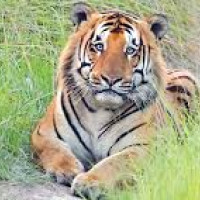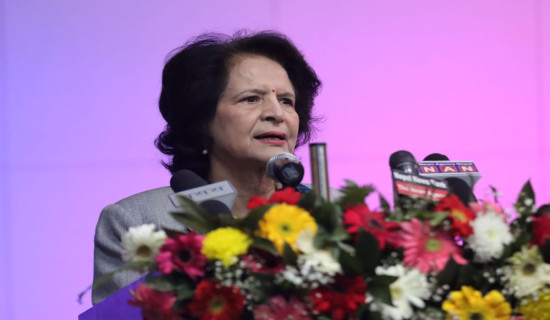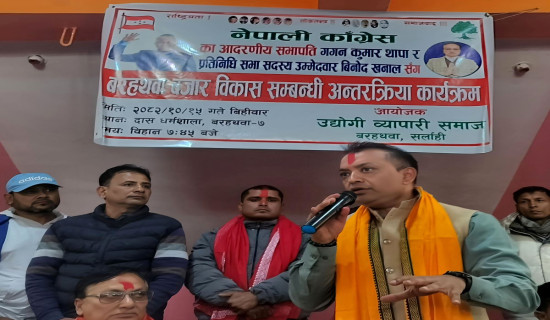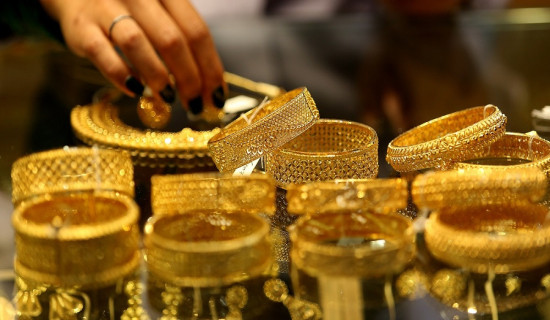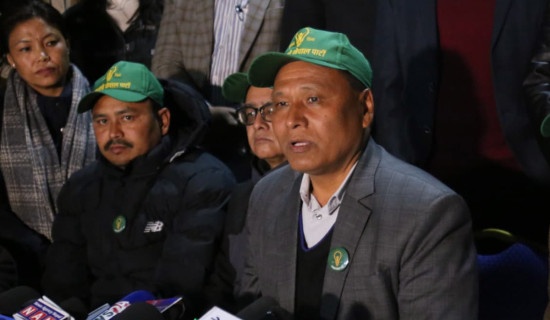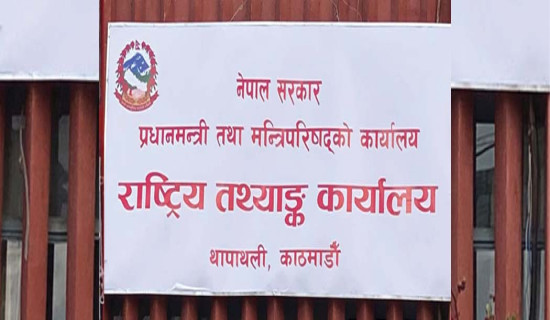- Friday, 30 January 2026
Livestock Department begins inspecting health of goats ahead of Dashain festival
Kathmandu, Sept. 27: The Department of Livestock Services (DLS) has intensified health inspections of goats in the Kathmandu Valley to ensure safe meat consumption during the Dashain festival.
According to Hari Singh Bhat, Veterinary Officer of the Department of Livestock Services, the Department by employing a team of veterinarian has been monitoring and testing the health of goats being sold bearing in mind consumer’s health.
The technicians have been deployed at 11 designated locations, including Sallaghari and Lokanthali of Bhaktapur, Kalanki, Dahachok, Thankot, Sukedhara, Balaju, Tokha, Tukucha, and other goat markets and collection centres.
"There is a possibility that traders will sell goats affected by various diseases taking advantage of the occasion of Dashain," he said, adding, "Considering human health, the government has started a programme testing the health of goats entering the valley from the day of Ghatasthapana."
He said that a team of five to seven people has been mobilised at the designated places for the health examination of goats.
The inspections include monitoring external signs of disease, heart palpitations, and blood samples.
Healthy goats are being marked with green labels on their horns, while unhealthy ones are identified with red marks, allowing consumers to make informed purchases.
“Only healthy young he-goats and castrated goats are permitted for sale,” Bhat said, adding that the checks aim to prevent animal-borne diseases and safeguard public health.
Veterinarians will inspect external signs of disease, heart palpitations, and blood samples to determine the health status of the goats, he told The Rising Nepal.
Healthy goats are being marked with green labels on their horns, while unhealthy ones are identified with red marks, allowing consumers to make informed purchases.
“Only healthy young he-goats and castrated goats are permitted for sale,” Bhat said, adding that the checks aim to prevent animal-borne diseases and safeguard public health.
He also suggested buying only the goats with green marks for pure and healthy meat.
According to Bhat, around 11,500 goats, 293 buffaloes and 26 tonnes of fishes have entered Kathmandu Valley from various parts of the country by Friday afternoon.
The supply of goats and buffaloes in the Kathmandu Valley has been increasing for the past few days, he said,
However, Bhat said that the supply of goats this year may decline compared to last year due to repeated road blockages caused by landslides on the Narayangadh-Mugling section.
Around 50,000 goats used to be consumed in Kathmandu Valley during Dashain festival.
In the previous year's Dashain, about 37,000 goats, 3,126 mountain goats, 3000 buffaloes, 600 sheep and 129 tonnes of fishess entered the Kathmandu Valley.
Goat trader and founder of Kalanki Gaot Bazaar, Jeevan Khatiwada, said that the supply of goats coming from outside the valley has been affected due to the landslide blocking the road in various places, including Tuin Khola and Narayangadh-Mugling section.
"Due to the road blockage, traders are currently discouraged from supplying goats purchased from various districts. Some 100 goats died when the traffic on the Narayangadhi-Mugling road was closed for two days and traders have suffered financial losses," he said.
He said that the supply of goats this year may be affected as many goat suppliers are discouraged from reaching remote areas to collect and supply goats after the highway was blocked on the Prithivi Highway time and again.
However, he said that the supply of goats is expected to increase from Saturday as the road in the Prithivi Highway has been opened since Thursday night after the landslide in Tuin Khola was removed.
He said that daily around 5,000 goats are expected to enter into Kathmandu Valley since Saturday if the roads are not blocked.
Talking about the price, he said that the price of live goats till Friday this year is almost the same as last year.
He said that based on the weight, live goats are being sold ranging from Rs. 650 to Rs. 725 per kilo, which is the same as last year.
However, he said that if there is another blockage on the highway and goats cannot be brought in, then the price cannot be controlled in the coming days.




